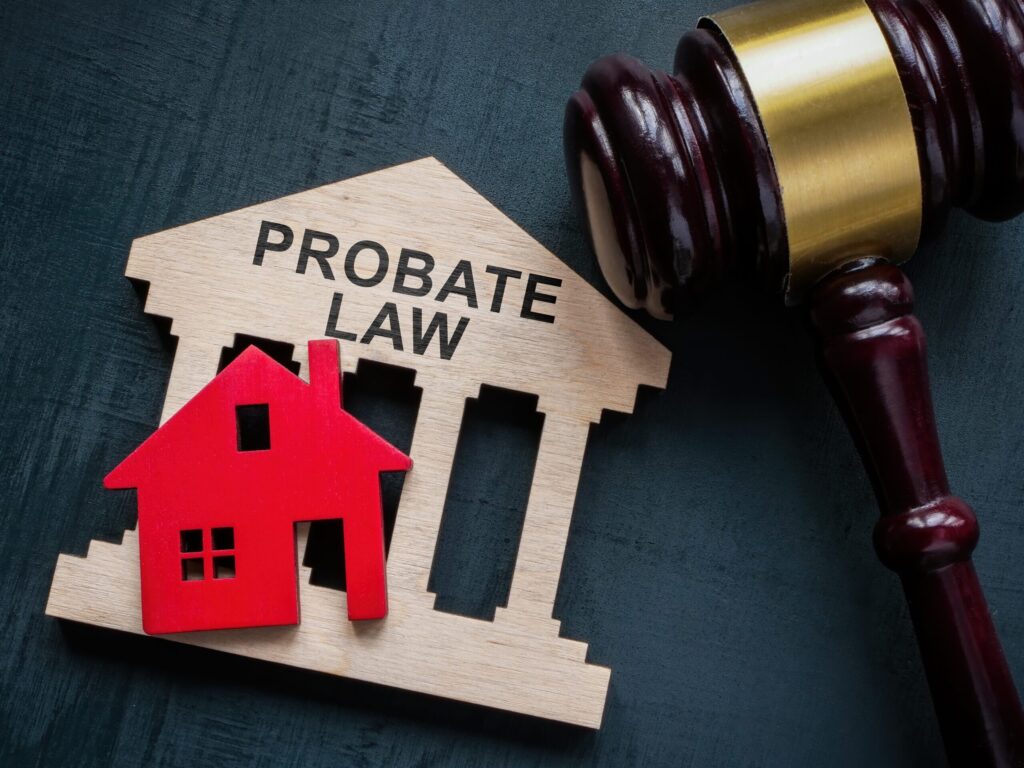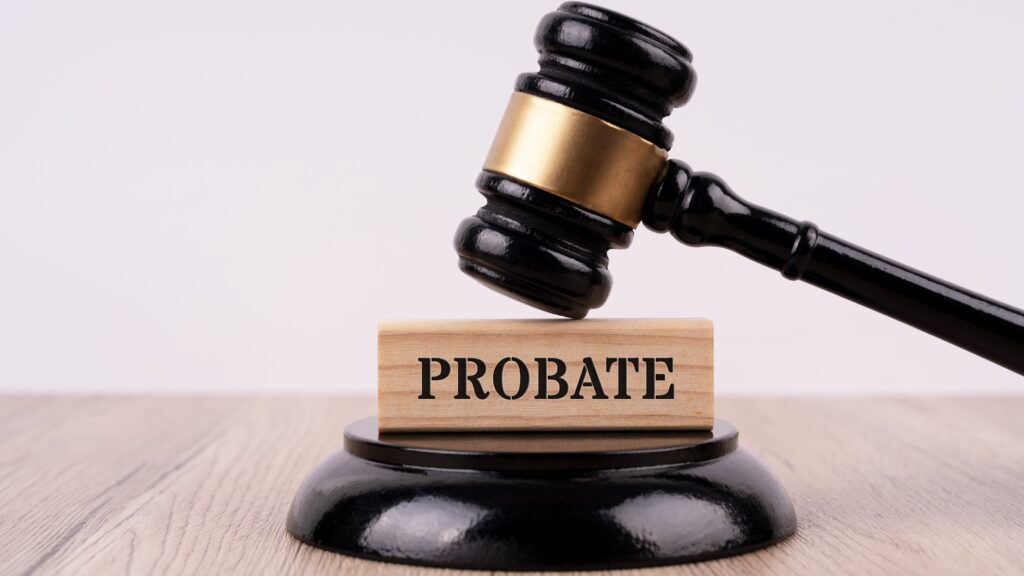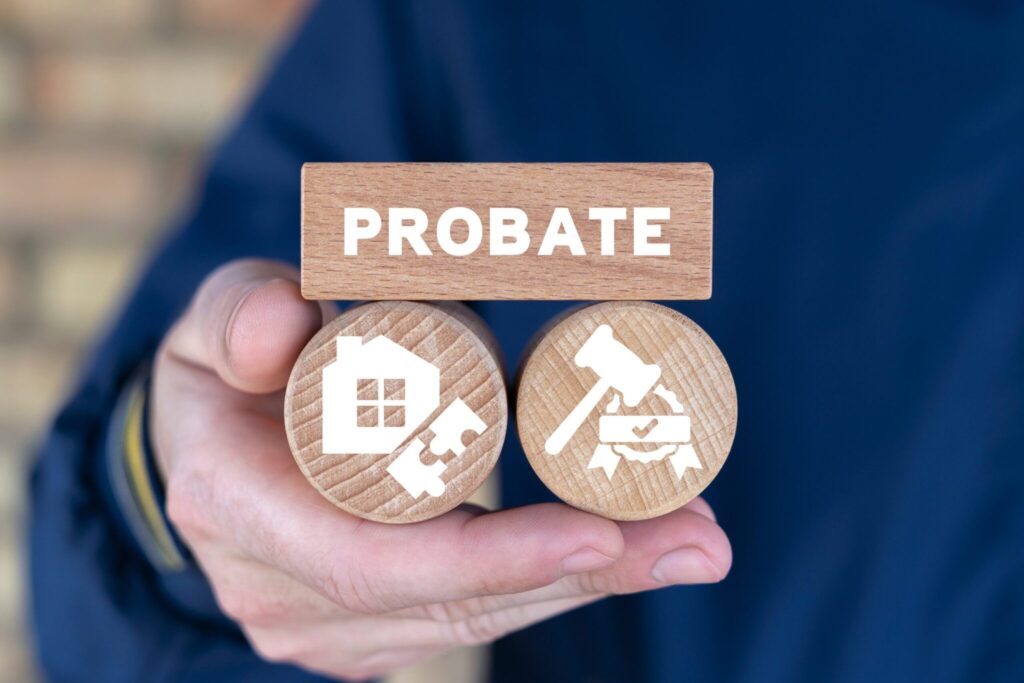If you’re facing foreclosure on inherited property before probate in Texas, the situation may feel like a storm you didn’t see coming. You’re grieving the loss of a loved one and, before you can catch your breath, a lender is threatening to take the family home. Unfortunately, this isn’t rare—and if you don’t take quick action, you could lose the property before probate even begins.
Let’s unpack what foreclosure on inherited property before probate in Texas really means, why it happens, and how you can step in to protect the estate. This isn’t just a legal issue—it’s a deeply emotional one that can tear families apart or bring them together. Either way, understanding your legal footing is essential.

Why Foreclosure Can Happen Before Probate in Texas
It may seem counterintuitive, but yes—foreclosure can legally begin before probate is completed in Texas. Here’s why: lenders have the right to enforce mortgage contracts regardless of the owner’s death. If your loved one passed away and the mortgage was behind, the bank won’t wait for theprobate process to finish before they begin foreclosure proceedings.
The Legal Reality
In Texas, real estate is often subject to liens, mortgages, or tax debts. When someone dies, their debt doesn’t disappear—it transfers to the estate. If mortgage payments are not maintained, the lender can issue a Notice of Default, then proceed to a Notice of Sale, just like they would with any other delinquent property. The only difference? The legal owner is now deceased, and the estate is in legal limbo.
Real Story: How One Family Lost a Home Before Probate Began
Consider this scenario: Maria’s mother passed away in San Antonio. The home was in her mother’s name, and Maria assumed she had time to file probate paperwork. But the mortgage had been behind for three months, and Maria had no idea.
Within 45 days of her mother’s passing, the bank began foreclosure. By the time Maria tried to open probate, she was hit with a foreclosure notice. Without quick legal action, the house was sold at auction. Maria not only lost her childhood home but also the equity it held—because she didn’t act fast enough.
Step 1: Understand What Probate Does—and Doesn’t Do
Before you can prevent foreclosure on inherited property before probate in Texas, you need to understand what probate is. Probate is the legal process that validates a will, appoints an executor, and oversees the distribution of the deceased’s estate.
But probate doesn’t happen instantly. It takes time—often weeks or even months—to initiate, especially in larger Texas counties. During this delay, the property remains vulnerable to foreclosure if mortgage payments lapse.
Probate Does:
- Establish legal authority for someone to act on behalf of the estate
- Allow debts and taxes to be paid in an organized manner
- Ensure heirs receive what they’re entitled to
Probate Does Not:
- Automatically pause foreclosure actions
- Provide instant control of the property to family members
- Eliminate debt associated with the property
That’s why it’s crucial to take steps before or immediately after death—not just wait on probate to sort things out.
Step 2: Determine Ownership Status of the Property
The next critical step in stopping foreclosure on inherited property before probate in Texas is confirming who actually owns the home. You need to check whether the deed is in the decedent’s name alone or jointly held.

Sole Ownership = Probate Asset
If the property is solely in the deceased’s name, it becomes a probate asset. You’ll need to open probate to transfer title and gain authority to act.
Joint Tenancy or Transfer-on-Death Deed = Immediate Transfer
If the deed names another person with right of survivorship or includes a Transfer-on-Death Deed (TODD), probate might not be necessary. In those cases, the property passes directly to the named survivor and avoids probate—but you still must deal with the mortgage.
Step 3: Communicate with the Mortgage Lender Immediately
One of the biggest mistakes heirs make is avoiding contact with the lender. But ignoring notices or calls only accelerates the foreclosure process.
Call the lender’s loss mitigation or probate department and let them know the borrower has passed away. Request a full payoff statement and ask whether the loan qualifies for a hardship forbearance, reinstatement plan, or assumption process.
What You’ll Need:
- A copy of the death certificate
- Proof that you’re the executor or heir (if probate hasn’t been opened yet, you can explain your intent)
- Mortgage account information
Some lenders may be flexible if they know someone is actively working to resolve the issue. Others may require court documents—but even starting the conversation can buy you valuable time.
Step 4: File for Probate Immediately (and Consider a Small Estate Affidavit)
Delays in filing probate increase the risk of losing the home. You’ll need a court order to officially act on behalf of the estate, even if you’re the only heir.
Texas Probate Options:
- Independent Administration: Common for estates with a valid will and cooperative heirs. Allows more flexibility.
- Dependent Administration: Court-supervised and more complex, but still enables asset management.
- Muniment of Title: A simplified probate option if there are no debts besides a mortgage. Good for heirs trying to transfer title quickly.
- Small Estate Affidavit: Available for estates worth less than $75,000 (excluding the home). This option can expedite the process, but has limitations.
Getting the right type of probate started is essential to prevent foreclosure on inherited property before probate in Texas from going too far.
Step 5: Request a Temporary Restraining Order (TRO) if Necessary
If foreclosure is imminent—like you’ve already received a Notice of Sale—you may need to act fast and file for a Temporary Restraining Order (TRO) to halt the foreclosure.
A Texas probate attorney can help file this emergency petition, which asks the court to pause the sale long enough for probate to be initiated and a plan to be put in place.
Situations That May Warrant a TRO:
- The lender refuses to delay the foreclosure
- You’ve filed for probate but haven’t received letters testamentary yet
- The estate has the ability to cure the mortgage but needs time
Courts don’t grant TROs lightly, so you’ll need compelling reasons, including an affidavit and legal argument. But this step has saved many Texas homes from the auction block.

Step 6: Explore Loan Assumption or Refinance Options
Once you have probate authority, you can explore options to keep the home, including assuming the mortgage or refinancing it in your name. Most lenders in Texas allow heirs to assume the loan, especially if they’re occupying the property.
Assumption Requirements:
- Proof of probate authority
- Credit check (in some cases)
- Application for assumption
If you can’t assume the loan, consider selling the home before foreclosure finalizes. The equity can then be preserved and distributed through probate, instead of being lost at auction.
Step 7: Consult a Probate and Foreclosure Attorney
This is not a DIY situation. The intersection of probate and foreclosure law in Texas is nuanced. An experienced attorney can help with:
- Filing emergency motions
- Navigating court procedures
- Negotiating with lenders
- Preventing unnecessary loss of estate assets
Even a short consultation can clarify the best strategy for your unique situation.
Hidden Pitfalls to Watch Out For
Here are some common traps that heirs fall into when dealing with foreclosure on inherited property before probate in Texas:
- Assuming probate isn’t necessary because there’s a will
- Waiting too long to act because they think the bank will delay
- Believing they can sell the property without court authority
- Forgetting to notify the lender or ignoring legal notices
Each of these mistakes can lead to foreclosure—often just weeks after a loved one’s death. Awareness and urgency are your best defenses.
The Emotional Toll: More Than Just a House
It’s easy to think of inherited property as just a financial asset. But more often, it’s the family home, a symbol of stability and memory. The threat of foreclosure brings up grief, guilt, fear, and frustration—especially if multiple heirs are involved.

Example: The Feuding Siblings in Austin
Three siblings inherited a modest home in East Austin. One wanted to live there, one wanted to sell, and the third wanted to keep it as a rental. As they argued over what to do, the mortgage lapsed. By the time they agreed on probate and filed paperwork, foreclosure had begun.
They managed to stop the sale through a TRO and refinancing, but not before thousands in legal fees and late payments piled up. It didn’t have to go that way—but they waited too long.
Final Thoughts: Foreclosure Is Preventable, But Time Matters
Foreclosure on inherited property before probate in Texas is scary—but it’s not inevitable. The key is knowing what steps to take and acting quickly. From understanding ownership to opening probate, negotiating with lenders, and filing emergency motions if needed, there are legal tools to protect the estate.
If you’re facing this situation right now, take a deep breath and remember: you’re not powerless. Every day counts. And with the right legal advice and prompt action, you can protect your loved one’s legacy and secure the future of the property they worked hard to leave behind.
foreclosure-inherited-property-texas








